
Ayana also served as a Marshall and speaker at the 2024 Commencement
Phone: 1-617-432-6543

Ayana also served as a Marshall and speaker at the 2024 Commencement
Worm Study Raises Concern About DEET’s Effect on Reproduction | Harvard Medical School
Link to Harvard Medicine News ArticleToxicologists Warn Bug Sprays May Cause Infertility and Birth Defects
Link to Newsweek ArticleWorm study raises concern about DEET’s effect on reproduction
Link to Science Magazine ArticleWorm study finds DEET insect repellent may cause reproductive problems
Link to Cosmos Magazine ArticleDEET found to cause reproductive damage in worms, warranting further investigation, scientists say
Link to Yahoo News ArticleBug Spray May Cause Infertility and Birth Defects, New Study Shows
Link to Best Life ArticleWorm study raises concern about DEET’s effect on reproduction
Link to Bioengineer ArticleQ&A: Worm study raises concern about DEET’s effect on reproduction
Link to Medical Xpress ArticleDoes the Insect Repellent DEET Affect Reproductive Systems?
Link to Inside Climate News ArticleWorms can teach us about side effects of mosquito repellent, scientists say
Link to Independent ArticleWorm Study Raises Concern About DEET’s Effect on Reproduction
Link to Someone Somewhere Blog Post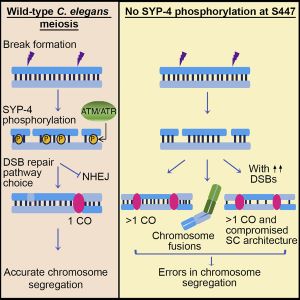
"Meiosis: Deciphering the dialog between recombination and the synaptonemal complex"
Link to Current Biology Dispatch
"Science can help people by studying the molecular mechanisms that underlie disease, particularly diseases that disproportionately affect women and minorities".
Link to Harvard Medicine magazine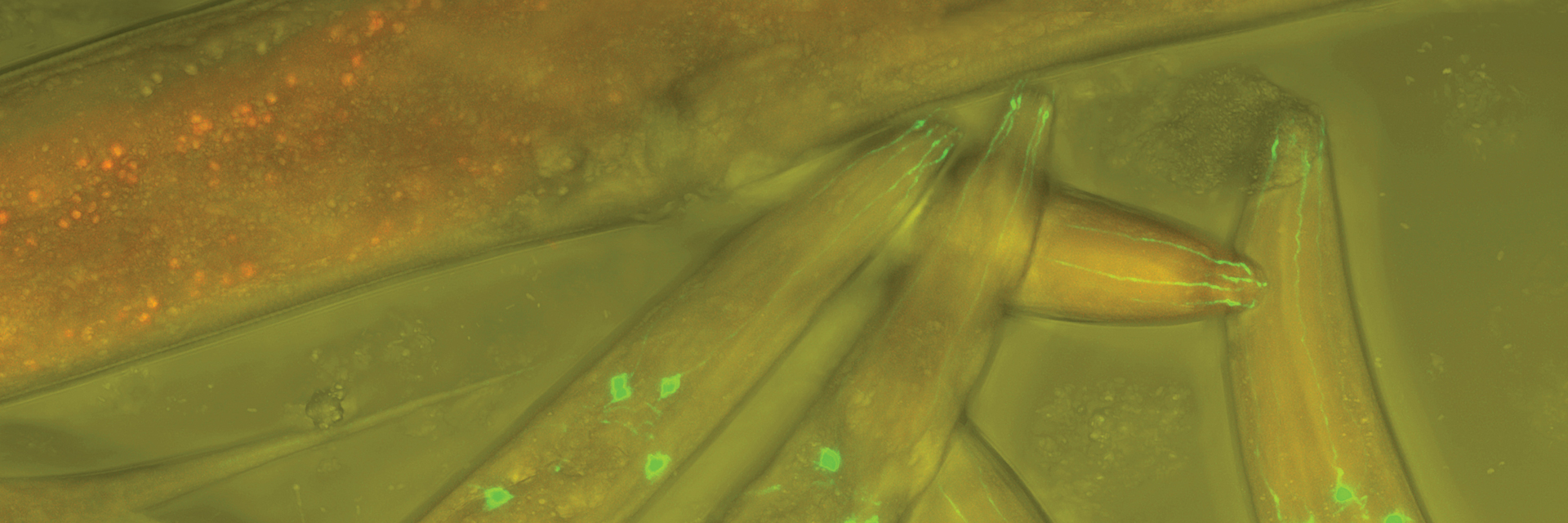
We found that a naturally occurring antioxidant, Coenzyme Q10, reversed most of the reproductive harm caused by the plasticizer BPA.
Link to Harvard Medicine magazine
Two studies from the labs of Steven McCarroll and Monica Colaiacovo provide new insights into how meiotic crossover formation is regulated to avoid aneuploidies, a cause for infertility, miscarriages and conditions such as Down syndrome.
Link to Harvard Medical School News.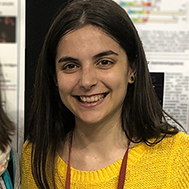
Marina Martinez-Garcia was a poster presentation winner at the 2020 Department of Genetics Retreat! She presented her work on Synaptonemal Complex Assembly in C. elegans
Link to the Genetics Retreat 2020 website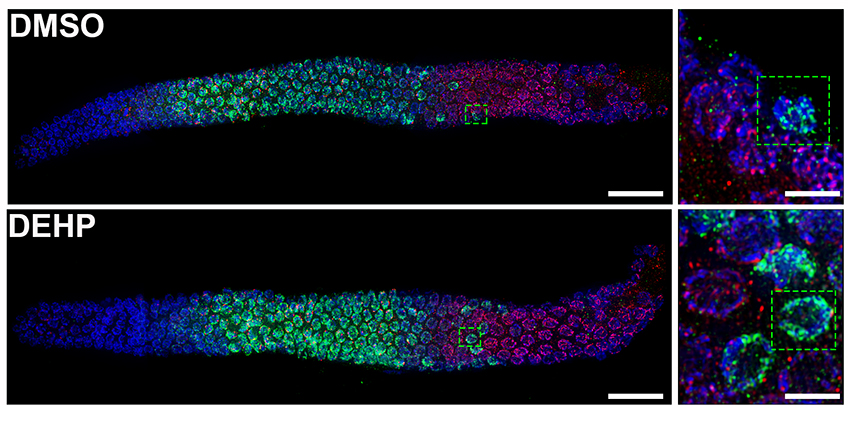
Harvard Medical School News highlights our new research revealing how DEHP, a common plasticizer, is associated with reproductive abnormalities.
Link to Harvard Medical School News Link to Genetic Engineering & Biotech News Link to EurekAlert! from the AAAS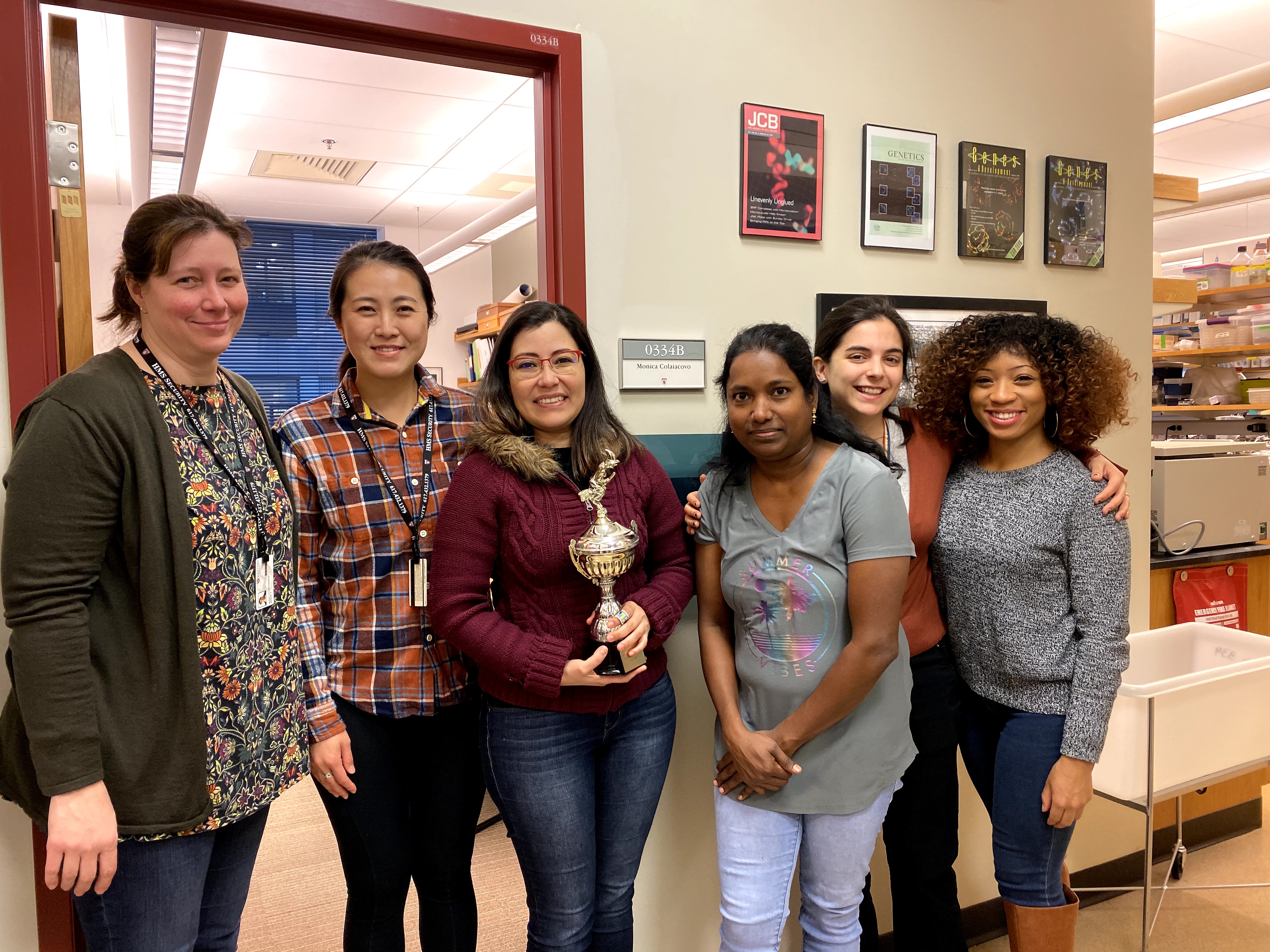
Laura guessed the number of treats inside Frankenstein Monster's head and our lab had the most members dressed up.
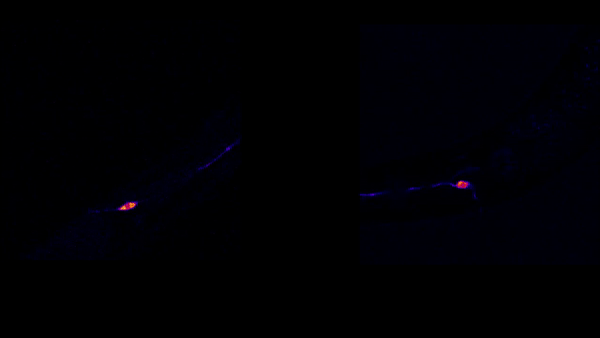
New research from the Yankner Lab, in collaboration with Monica Colaiacovo and George Church, offers the first evidence that nervous system activity affects human longevity.
Link to The Harvard Gazette.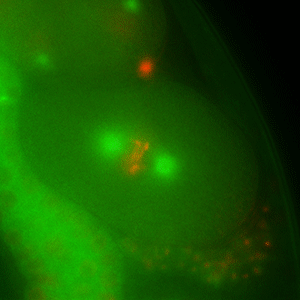
"Worm-based tool reveals environmental chemicals likely to cause reproductive problems in people" In the image, chromosomes (red) are improperly organized and separated in a dividing worm embryo following exposure to the pesticide TCMTB.
Link to Harvard Medical News
The histone demethylase LSD1 was originally discovered as removing methyl groups from di- and monomethylated histone H3 lysine 4 (H3K4me2/1), and several studies suggest it plays roles in meiosis as well as epigenetic sterility given that in its absence there is evidence of a progressive accumulation of H3K4me2 through generations. In addition to transgenerational sterility, growing evidence for the importance of histone methylation in the regulation of DNA damage repair has attracted more attention to the field in recent years. However, we are still far from understanding the mechanisms by which histone methylation is involved in DNA damage repair and only a few studies have been focused on the roles of histone demethylases in germline maintenance. Here, we show that the histone demethylase LSD1/CeSPR-5 is interacting with the Fanconi Anemia (FA) protein FANCM/CeFNCM-1 based on biochemical, cytological and genetic analyses. LSD1/CeSPR-5 is required for replication stress-induced S-phase checkpoint activation and its absence suppresses the embryonic lethality and larval arrest observed in fncm-1 mutants. FANCM/CeFNCM-1 re-localizes upon hydroxyurea exposure and co-localizes with FANCD2/CeFCD-2 and LSD1/CeSPR-5 suggesting coordination between this histone demethylase and FA components to resolve replication stress. Surprisingly, the FA pathway is required for H3K4me2 maintenance regardless of the presence of replication stress. Our study reveals a connection between Fanconi Anemia and epigenetic maintenance, therefore providing new mechanistic insight into the regulation of histone methylation in DNA repair.
Link to Preprint
This latest issue of Harvard Medicine Magazine is focused on the environment. Monica talks about the research from our lab looking into how reproductive health is impacted due to exposures to common chemicals present in our environment.
Link to Harvard Medical Magazine
PLOS Genetics publishes human studies, as well as research on model organisms—from mice and flies, to plants and bacteria. Their emphasis is on studies of broad interest that provide significant insight into a biological process or processes. Topics include (but are not limited to) gene discovery and function, population genetics, genome projects, comparative and functional genomics, medical genetics, disease biology, evolution, gene expression, complex traits, chromosome biology, and epigenetics.
Link to PLOS Genetics
Nara Shin was a poster presentation winner at the 2016 Department of Genetics Retreat!
She presented her work on: "Assessing Germline Exposure to Environmental Toxicants
by High-Throughput Screening in C. elegans"

Congratulations!
Take a look at the picturesYou can read this interesting interview of Monica Colaiacovo for @HMS
Read the iterview
Dr. Monica Colaiacovo
Blavatnik Institute, Harvard Medical School
Department of Genetics
New Research Building, Room 334
77 Avenue Louis Pasteur, Boston, MA 02115 USA
Telephone: 1-617-432-6543
Email: mcolaiacovo@genetics.med.harvard.edu
